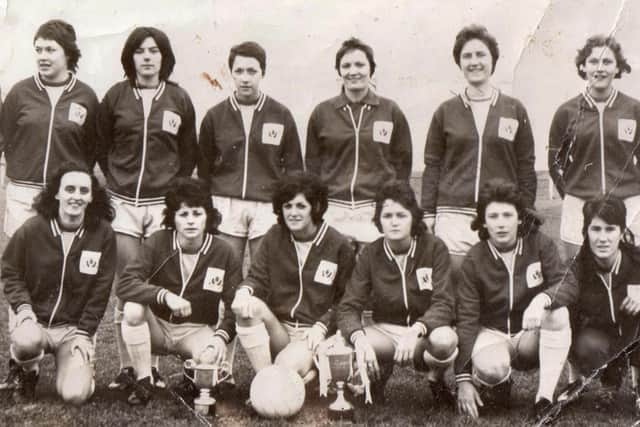BBC documentary The Women Who Changed Modern Scotland reveals inspirational giants of recent history – Karyn McCluskey
I was invited to a BBC event to see an advance screening of the first episode of the series, The Women Who Changed Modern Scotland, which airs tomorrow. It was late, I was tired but I turned up nonetheless to a lecture theatre full of women to watch it.
A programme about (extra-) ordinary women who did something spectacular, it was an education. Oh, the shame I felt that I hadn’t known about them. Those like Elsie Cook and other women who just wanted to play football, and took on those who dismissed and othered them, including the top brass in the sport.
Advertisement
Hide AdAdvertisement
Hide AdWhen I look at women’s football in Scotland and the Scottish Women’s Premier League, not to mention the number of women and girls who play across Scotland in towns, schools and villages, the opportunities that they have now were hard fought and won by women in the ’60s and ’70s. The women who in past decades never reached their potential because of the structural inequality that permeated institutions and society. Scotland had an embarrassment of riches in relation to women like Elsie who just changed things for the better. What a woman.
Even more up my street were the women in Craigmillar in the ’60s and ’70s who, when tired of the inactivity and neglect in their community, took it upon themselves to change it. Their version of community development was superb, transforming their environment, creating social change and connecting people, working out who could ‘do stuff’ and who needed ‘stuff done’.
If it was happening now, they would be on awards platforms, in the newspapers for ‘asset-based community work’ and transformational change. Their ‘movement’ came from a place of injustice and a desire to make life better. It felt passionate with no-nonsense, hard-working women at the heart who were motivated to make change.
Helen Crummy developed the Craigmillar Festival Society, a hugely successful community arts society which spawned many successful actors and artists. She was eventually given an MBE – I would have made her a Dame!
Whilst I don’t want to write a spoiler for a great programme, I want to commend the series to all who might read this column, for the detail around domestic abuse and Women’s Aid. The history around how refuges and organisations came into being and the role of academic researchers was humbling and important.


The testimony of women who experienced attitudes which were shocking in 1970 but I believe, indeed I know, exist in some places and in corners of organisations even today. It should harden our resolve around violence against women and girls, and guard against complacency – we are far from fixed.
The black-and-white footage may feel dated, but the sense of injustice leapt off the screen. The creators have done a great job in centring these remarkable women in the context of the Scotland we now inhabit. I left thinking I need to up my game.
Karyn McCluskey is chief executive of Community Justice Scotland
Comments
Want to join the conversation? Please or to comment on this article.